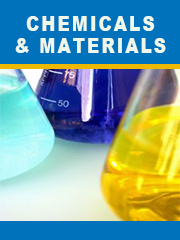Report overview
Powder metallurgy components are parts made from powdered metal via powder metallurgy (PM). Powder metallurgy refers to processes by which materials or components are made from metal powders.
This report aims to provide a comprehensive presentation of the global market for Powder Metallurgy Components, with both quantitative and qualitative analysis, to help readers develop business/growth strategies, assess the market competitive situation, analyze their position in the current marketplace, and make informed business decisions regarding Powder Metallurgy Components. This report contains market size and forecasts of Powder Metallurgy Components in global, including the following market information:
Global Powder Metallurgy Components Market Revenue, 2018-2023, 2024-2029, ($ millions)
Global Powder Metallurgy Components Market Sales, 2018-2023, 2024-2029, (K MT)
Global top five Powder Metallurgy Components companies in 2022 (%)
The global Powder Metallurgy Components market was valued at US$ 12530 million in 2022 and is projected to reach US$ 16410 million by 2029, at a CAGR of 3.9% during the forecast period. The influence of COVID-19 and the Russia-Ukraine War were considered while estimating market sizes.
Global Powder Metallurgy Components key players include GKN, Sumitomo Electric Industries, Hitachi Chemical, Fine Sinter, Miba AG, etc. Global top five manufacturers hold a share about 30%.
Asia-Pacific is the largest market, with a share about 50%, followed by North America and Europe, both have a share over 40 percent.
In terms of product, Ferrous is the largest segment, with a share over 70%. And in terms of application, the largest application is Automotive, followed by Industrial.
We surveyed the Powder Metallurgy Components manufacturers, suppliers, distributors and industry experts on this industry, involving the sales, revenue, demand, price change, product type, recent development and plan, industry trends, drivers, challenges, obstacles, and potential risks.
Total Market by Segment:
Global Powder Metallurgy Components Market, by Type, 2018-2023, 2024-2029 ($ Millions) & (K MT)
Global Powder Metallurgy Components Market Segment Percentages, by Type, 2022 (%)
Ferrous Metals
Non-ferrous Metals
Global Powder Metallurgy Components Market, by Application, 2018-2023, 2024-2029 ($ Millions) & (K MT)
Global Powder Metallurgy Components Market Segment Percentages, by Application, 2022 (%)
Automotive
Aerospace
Medical
Industrial
Electrical & Electronics
Others
Global Powder Metallurgy Components Market, By Region and Country, 2018-2023, 2024-2029 ($ Millions) & (K MT)
Global Powder Metallurgy Components Market Segment Percentages, By Region and Country, 2022 (%)
North America
US
Canada
Mexico
Europe
Germany
France
U.K.
Italy
Russia
Nordic Countries
Benelux
Rest of Europe
Asia
China
Japan
South Korea
Southeast Asia
India
Rest of Asia
South America
Brazil
Argentina
Rest of South America
Middle East & Africa
Turkey
Israel
Saudi Arabia
UAE
Rest of Middle East & Africa
Competitor Analysis
The report also provides analysis of leading market participants including:
Key companies Powder Metallurgy Components revenues in global market, 2018-2023 (Estimated), ($ millions)
Key companies Powder Metallurgy Components revenues share in global market, 2022 (%)
Key companies Powder Metallurgy Components sales in global market, 2018-2023 (Estimated), (K MT)
Key companies Powder Metallurgy Components sales share in global market, 2022 (%)
Further, the report presents profiles of competitors in the market, key players include:
GKN
Sumitomo Electric Industries
Hitachi Chemical
Fine Sinter
Miba AG
Porite
PMG Holding
AAM
Hoganas AB
AMETEK Specialty Metal Products
Allegheny Technologies Incorporated
Burgess-Norton
Carpenter Technology
Diamet
Dongmu
Shanghai Automotive Powder Metallurgy
Weida
Outline of Major Chapters:
Chapter 1: Introduces the definition of Powder Metallurgy Components, market overview.
Chapter 2: Global Powder Metallurgy Components market size in revenue and volume.
Chapter 3: Detailed analysis of Powder Metallurgy Components manufacturers competitive landscape, price, sales and revenue market share, latest development plan, merger, and acquisition information, etc.
Chapter 4: Provides the analysis of various market segments by type, covering the market size and development potential of each market segment, to help readers find the blue ocean market in different market segments.
Chapter 5: Provides the analysis of various market segments by application, covering the market size and development potential of each market segment, to help readers find the blue ocean market in different downstream markets.
Chapter 6: Sales of Powder Metallurgy Components in regional level and country level. It provides a quantitative analysis of the market size and development potential of each region and its main countries and introduces the market development, future development prospects, market space of each country in the world.
Chapter 7: Provides profiles of key players, introducing the basic situation of the main companies in the market in detail, including product sales, revenue, price, gross margin, product introduction, recent development, etc.
Chapter 8: Global Powder Metallurgy Components capacity by region & country.
Chapter 9: Introduces the market dynamics, latest developments of the market, the driving factors and restrictive factors of the market, the challenges and risks faced by manufacturers in the industry, and the analysis of relevant policies in the industry.
Chapter 10: Analysis of industrial chain, including the upstream and downstream of the industry.
Chapter 11: The main points and conclusions of the report.
